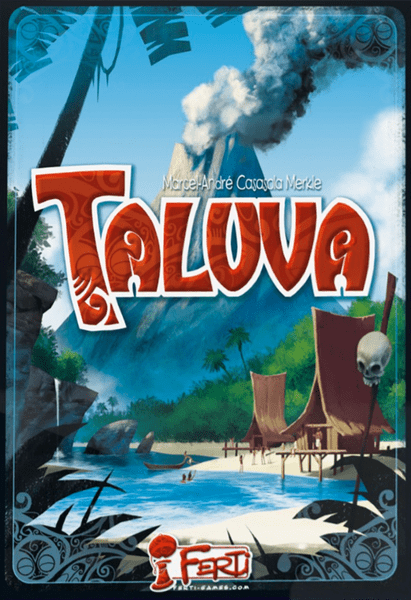Taluva (2006) Board Game
Taluva is an abstract strategy board game that was first released in in 2006. Designed by Manuel Casasola Merkle, Xavier Gueniffey Durin, Julien Le Faucheur, and Marcel-André Casasola Merkle, the game has gained popularity for its unique gameplay mechanics and strategic depth. The game is set in the ancient world of Taluva, where players compete to build cities and temples on the island’s volcanic landscape.
Game Components of Taluva
How To Setup Taluva
To set up Taluva, players start by shuffling the 48 Volcano tiles and placing them face down as a stack. Each player chooses a color and places their corresponding Temples, Towers, and Huts in front of them as their construction pool. The youngest player begins the game by placing the first tile in the middle of the table, ensuring at least one side of the tile touches another tile already on the table.
Gameplay Mechanics and Game Objective
Mechanics
Game Objective
Player Experience
Taluva offers a highly strategic and engaging experience, requiring players to navigate the constantly changing island landscape. Players must balance short-term tactics with long-term goals, such as expanding their settlements while limiting their opponents’ growth potential. The game’s dynamic nature and the threat of volcanic eruptions that can destroy or split settlements add a layer of complexity and excitement, making each game unique and challenging.
Pros
Cons
Personal Thoughts on Taluva
Taluva is ideal for players who enjoy strategic planning, landscape manipulation, and balancing short-term tactics with long-term goals. It is well-suited for fans of abstract games with a thematic twist, offering a challenging yet rewarding experience. However, due to its complexity and potential for player elimination, it may not be the best fit for casual or younger players. Overall, Taluva is a beautifully crafted game that will appeal to those who enjoy deep strategic gameplay and dynamic environments.
We are supported by our audience. When you purchase through links on our site, we may earn an affiliate commission, at no extra cost for you. Learn more.

